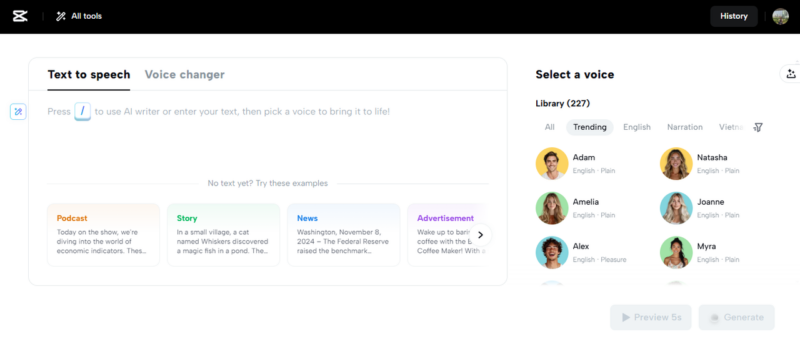

As someone who’s navigated the vast world of cannabinoids, I’ve noticed Delta 8 THC gaining a lot of attention lately. This intriguing compound, often overshadowed by its more famous cousin Delta 9 THC, offers a unique experience that’s piquing the curiosity of many. With its distinct benefits and effects, Delta 8 is carving a niche for itself in the cannabis community.
I’ve often found people are eager to understand what sets Delta 8 apart and why it’s becoming a popular choice. Unlike Delta 9, which is known for its potent psychoactive properties, Delta 8 offers a milder, more manageable high. This makes it appealing for those seeking relaxation without the intensity. Understanding its benefits and uses can help you make informed decisions about incorporating it into your lifestyle. Let’s dive into the world of Delta 8 and uncover what makes it so special.
What Is Delta 8?
Delta 8, a cannabinoid found in the cannabis plant, shares similarities with Delta 9 THC but with distinct differences. Known scientifically as Delta-8-tetrahydrocannabinol, it interacts with the body’s endocannabinoid system, creating effects that are less intense than Delta 9. This subtlety draws interest from those who prefer a milder sensory experience.
Delta 8 originates primarily from hemp and undergoes extraction through isomerization—a process that converts cannabinoids such as CBD into Delta 8. This technique allows for higher concentrations, making production efficient. While Delta 9 remains more prevalent, Delta 8 offers unique advantages that cater to diverse preferences.
Though psychoactive, Delta 8’s effects are more controlled. Users often report improved relaxation and clarity, pointing to cognitive function benefits. Critical to Delta 8’s rise has been its legal status; it’s derived from hemp, which carries fewer restrictions in many regions compared to Delta 9.
When selecting products, considering the best Delta 8 brands is essential for quality and safety. Reputable brands ensure rigorous testing and transparent sourcing, providing confidence in the consumption of Delta-8 THC also contributes to cognitive function. With its growing popularity and unique profile, Delta 8 continues to appeal to a wide range of cannabis enthusiasts.
How Delta 8 Works
Delta 8 THC interacts with the body by binding to the CB1 receptors in the central nervous system. These receptors are part of the endocannabinoid system, playing a crucial role in maintaining equilibrium within various physiological processes. While Delta 8 binds similarly to Delta 9 THC, its impact is less potent, offering a subtler experience.
Upon consumption, Delta 8 undergoes metabolism by the liver, converting it into 11-hydroxy-THC. This metabolite further interacts with the body’s systems, producing effects such as mild euphoria and enhanced relaxation. Users who engage with this cannabinoid often report improved mood and stress relief.
Additionally, Delta 8 THC also contributes to cognitive function by interacting with the brain’s neurotransmitters. It may influence memory and focus, providing users with mental clarity without the overpowering effects typical of Delta 9 THC. Many find this balance an attractive feature when choosing cannabis products.
Unique Benefits of Delta 8
Delta 8 THC offers several unique advantages that contribute to its growing appeal. I’ll explore these benefits, focusing on health, psychoactive properties, and legal nuances.
Health Benefits
Delta 8 provides notable health benefits, particularly in stress management. Users often experience stress relief, thanks to its interaction with the endocannabinoid system. Enhancing mood and promoting relaxation are key effects, while some users report improved memory and focus. These cognitive benefits further cement its reputation as a versatile cannabinoid.
Psychoactive Effects
The psychoactive effects of Delta 8 are known for being milder than those of Delta 9 THC. This makes it suitable for those seeking an enjoyable experience without intense euphoria.

Consumers appreciate Delta 8’s ability to deliver a calming high that allows for mental clarity and focus, making it a choice for enhancing cognitive function.
Legal Considerations
Delta 8’s legal status is another factor contributing to its popularity. Derived from hemp, Delta 8 faces fewer restrictions in many regions. This legal standing offers consumers access to a cannabinoid with less regulatory hassle. However, it’s crucial to choose products from the most Delta 8 brands, ensuring quality through rigorous testing and transparent sourcing.
Comparing Delta 8 with Delta 9
Delta 8 THC and Delta 9 THC share similarities but differ in crucial ways. Understanding their distinctions helps in choosing the right compound for individual preferences and needs.
Chemical Composition
Delta 8 THC and Delta 9 THC are isomers, meaning they have the same molecular formula but differ in structure. This difference lies in the placement of a double bond on the carbon chain. In Delta 8, the bond is on the eighth carbon, while in Delta 9, it’s on the ninth. This slight variation affects how they bind to the CB1 receptors in the brain, resulting in different psychoactive effects.
Intensity of Effects
Delta 9 THC is known for its potent psychoactive effects, often causing intense euphoria and potential anxiety in high doses. Conversely, Delta 8 THC offers a milder experience, providing relaxation and mood enhancement without overwhelming intensity. Many users appreciate Delta 8 for its supportive role in cognitive function, offering clarity and focus while avoiding the strong psychoactive impact of Delta 9. This makes Delta 8 suitable for those seeking a more manageable and calming experience.
Potential Uses of Delta 8
Delta 8 THC, often lauded for its unique properties, offers several intriguing uses. When integrating Delta 8 into daily routines, users may find benefits in maintaining balance and improving their overall well-being.
- Anxiety Relief: Individuals seeking reduced anxiety might consider Delta 8. By interacting with CB1 receptors linked to mood regulation, it gently eases anxiety without the overwhelming effects associated with Delta 9 THC. This makes it an appealing option for those needing to manage stress in social or work environments.
- Pain Management: For those managing chronic pain, Delta 8 serves as a potential alternative. Users have reported alleviated discomfort, possibly due to anti-inflammatory properties. Its ability to bind to receptors associated with pain sensation may offer relief without the intensity of stronger THC variants.

- Appetite Stimulation: Delta 8 may assist individuals experiencing appetite loss. Similar to Delta 9, it can stimulate hunger, which is beneficial for those undergoing treatments like chemotherapy, where appetite is often suppressed.
- Cognitive Function: Users have experienced enhanced cognitive function with Delta 8. It contributes to clarity by improving memory and focus, offering a sharper mental state. Those needing to maintain productivity without psychoactive hindrance find its effects particularly beneficial.
- Sleep Support: Delta 8 may promote better sleep. Individuals reporting insomnia or restlessness find its mild sedative effects conducive to achieving restful sleep, aiding in a refreshed start to the day.
Each of these uses showcases the versatility of Delta 8 in lifestyle enhancement. When selecting products, I recommend considering the best Delta 8 brands to ensure safety and efficacy, reflecting the importance of quality sourcing and testing, and providing an opportunity for users to integrate Delta 8 confidently into their lives.













